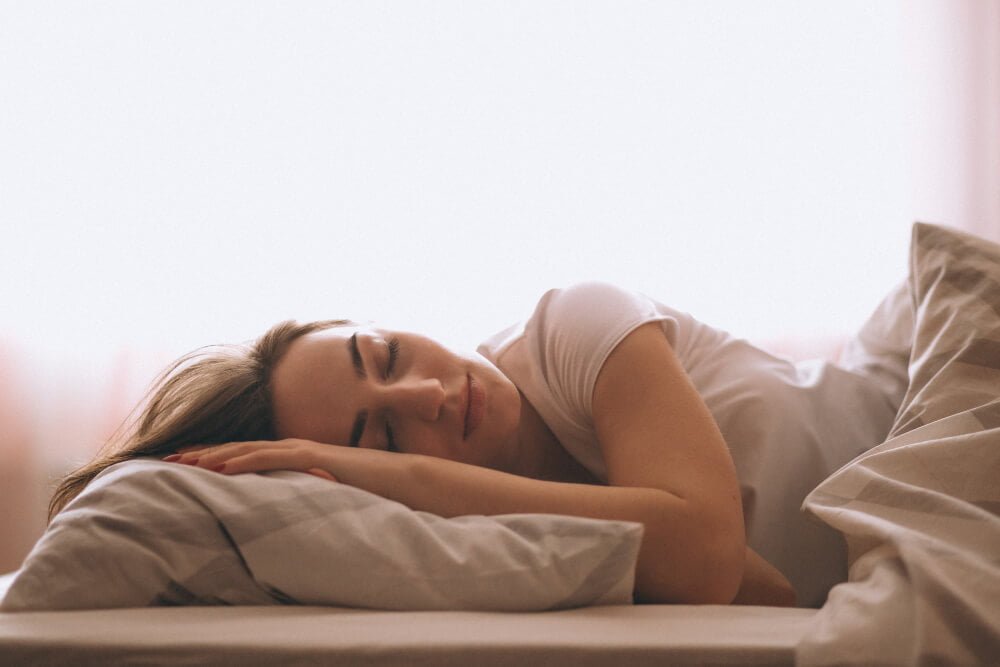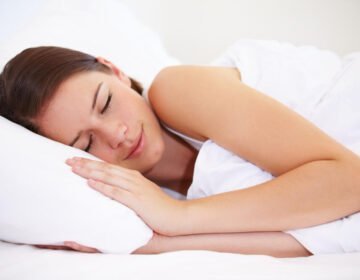
How much deep, light, and REM sleep do you need?
If you are becoming the endorsed quantity of shut-eye — seven to 9 hours a night time — you’re spending approximately one-0.33 of your lifestyle asleep.
Although it can appear to be numerous times, your thoughts and frame are very busy for the duration of that time so that you may be productive, energetic, and healthful whilst you’re unsleeping.
Five degrees of sleep rotate among non-speedy eye movement (NREM) and speedy eye movement (REM) and encompass drowsiness, mild sleep, mild to deep sleep, innermost sleep, and dreaming.
Experts have endorsed that adults receive approximately 7 to nine hours of sleep in step with the nighttime. New studies goals to pick out now are no longer simply how much available rest you want but also how much of every degree of sleep you want.
The stages of sleep
Sleep stages 1, 2, and REM encompass mild sleep, at the same time as three and four incorporate deep sleep.
Stage 1
During stage 1, you glide from being unsleeping to being asleep. This is a mild, NREM sleep that doesn’t close very long. You might also begin to loosen up and dream; however, you may twitch as you transition into degree 2.
Stage 2
Stage 2 of the sleep cycle continues to be mild sleep. However, you’re drifting right into a steadier sleep. Your respiratory and heartbeat are sluggish down, and your muscle tissues loosen up. Your frame temperature decreases, and your mind waves are much less active.
Stages three and four
In stage three, you input deep sleep, and degree four is the innermost sleep degree. Your respiratory, heartbeat, frame temperature, and mind waves attain their lowest ranges during deep sleep. Your muscle tissues are extraordinarily relaxed, and you’re maximum hard to rouse.
Stage four is called the restoration degree; while tissue boom and restoration occur, essential hormones are launched to do their jobs, and cell power is restored.
REM sleep
Your first REM nighttime cycle starts to evolve approximately ninety minutes once you doze off and recurs every ninety minutes. Your eyes flow round speedy in the back of your eyelids, and your brainwaves appearance just like the ones of a person who’s unsleeping. Likewise, your respiratory, coronary heart rate and blood strain upward push to near-waking ranges.
REM sleep, frequently known as degree 5, is whilst you are maximum possibly to dream.
Your legs and arms come to be briefly paralyzed for the duration of this degree to save you from bodily performing out your dreams.
How much deep sleep should you get?
Approximately thirteen to 23 per cent of your sleep in healthful adults is deep sleep. So in case you sleep for eight hours a night, that’s more or less sixty-two to one hundred ten mins.
However, as you become old, you require much less deep sleep.
During deep sleep, several capabilities take vicinity withinside the thoughts and body:
- reminiscences are consolidated
- studying and feelings technique
- bodily recuperation occurs
- blood sugar ranges and metabolism stability out
- the immune machine is energized
- the mind detoxifies
Without deep sleep, those capabilities can’t take vicinity and the signs of sleep deprivation kick in.
On the alternative hand, there doesn’t appear to be this element as an excessive amount of deep sleep.
How much REM sleep should you get?
Although there’s no authentic consensus on how lots REM sleep you ought to get, dreaming is a maximum not unusual place for the duration of this degree. Experts believeTrusted Source that dreaming allows you technique feelings and solidify sure reminiscences.
For maximum adults, REM takes up approximately 20 to twenty-five per cent of sleep, which appears to be healthful for the duration of standard sleep cycles. However, sleep studies are elevating a few exciting questions. One current observation recommended that better quantities of REM sleep can be related to depression. But don’t cross making surprising modifications to your sleep habits — it isn’t always clean. That’s the motive, and that’s the effect.
How much light sleep should you get?
Although sleep scientists accept that mild sleep is proper for you, there may be no minimal to attempt for. Light sleep is typically the default degree, one this is almost impossible to keep away from in case you are asleep at all.
However, too much typical sleep on an everyday basis is connected to obesity, depression, pain, coronary heart disease, or even elevated hazard of death.
How much deep and light sleep should children get?
Babies and youngsters want extra sleep than adults. Babies wish to the maximum, spending approximately sixteen of each 24 hours asleep. About 50 per cent of their shut-eye is spent withinside the REM degree, at the same time as the alternative, 50 per cent is split among degrees 1 via four and NREM sleep that cycles among mild and profound.
As youngsters develop older, the quantity of sleep they want varies:
- toddlers: eleven to fourteen hours
- preschoolers: 10 to thirteen hours
- school-elderly children: nine to twelve hours
- teens: eight to ten hours
With sufficient sleep that looks restful, the mild, deep, and REM ratio may be precisely where it ought to be in younger human beings.
If they’re having a problem with falling asleep, staying asleep, or drowsing well, or if they’re drowsing manner an excessive amount of for their age, youngsters can be irritable, may want to have to study, and reminiscence problems, or can be extra vulnerable to illness.
How to grow deep sleep
If you sleep eight hours, toss and flip all night time, you can no longer be getting sufficient deep sleep.
It’s not possible to pressure your mind to enter deep sleep. However, some techniques have proven a few promises in phrases of growing your per cent of deep sleep. These encompass:
- decreasing stress
- setting up sleep rituals and routines
- the use of an eye fixed masks to dam out mild
- drowsing in a groovy room
- exercising
- consuming a healthful diet
- being attentive to whiteTrusted Source or red noise
- brainwave entrainment
- meditation
Although the technology continues to be new, some sleep trackers are to be had, which can assist you song your sleep styles and spot how many mild, REM, and deep sleep you are becoming.
Why you may be waking up tired
According to the American Sleep Apnea Association, you ought to experience cleanliness and alert whilst you wake up; however, many human beings don’t.
If you’re drowsing for 7 to nine hours every night time, however most effective ten percentage of this is deep sleep, you’re now no longer getting the ninety mins you want and can nevertheless be worn out every day. Asleep observation might also additionally assist you in discerning out what goes on.
There are some viable reasons which you may need to talk about with a doctor, including:
- well-known sleep disorder
- obstructive sleep apnea
- now no longer getting sufficient sleep
- getting an excessive amount of sleep
- different fitness situations that motive fatigue
Impact of sleep deprivation on the body
Scientists say that great sleep is as essential to health as meals and water are. It lets you live on and thrive. Some of the facet consequences of sleep deprivation encompass:
- reminiscence troubles
- temper modifications
- weakened immunity
- problem concentrating
- negative reaction time and elevated hazard of accidents
- excessive blood strain
- weight gain
- hazard for diabetes
- low intercourse drive
- risk of coronary heart disease
- negative stability
- early ageing
Conclusion
Scientists agree that sleep is crucial to fitness, and at the same time, as degrees 1 to four and REM sleep are all essential, deep sleep is the maximum critical of occupied with feeling rested and staying healthful.
The familiar healthful person receives more or less 1 to two hours of deep sleep in step with eight hours of nightly sleep. There are diverse methods to gauge whether or not you’re, from non-public trackers to a nap observe.
If you’re waking up worn-out on an everyday basis, it’s an excellent concept to speak to a healthcare provider.















